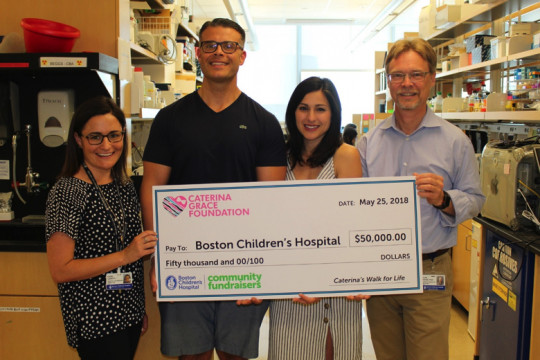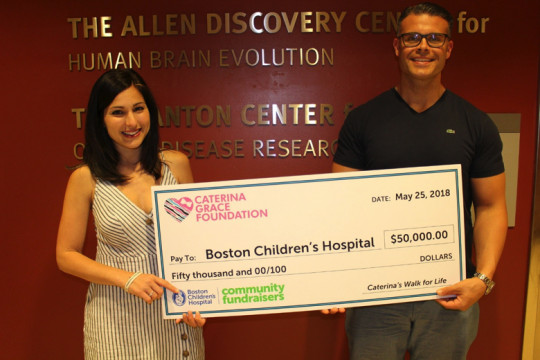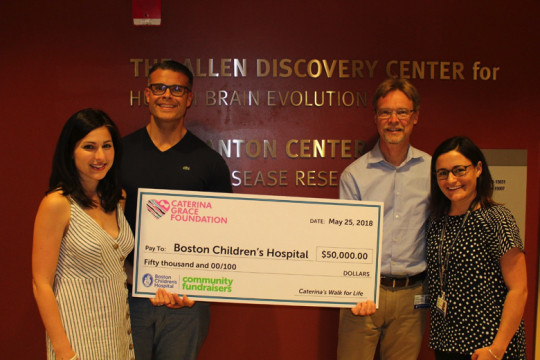Two months after the birth of our third child, we decided to take a trip to Boston to visit the research lab and the team responsible for conducting studies on rare congenital myopathies. A close friend of ours at Quinnipiac University was getting married in Boston and we felt it would be the perfect opportunity to spend an extra day there and visit the hospital. The entire proceeds from our walk in November went towards a donation of $50,000 to Dr. Alan Beggs and his research lab for Nemaline Myopathy. Anthony and I spent over 2 hours talking with Dr. Alan Beggs and Genomics specialist, Dr. Casie Genetti, regarding the past present and future research of this disease as well as studies being conducted in other countries. Dr. Alan Beggs and his team are responsible for identifying 10 out of the 11 genes that cause Nemaline Myopathy. The latest 1, being discovered by a doctor he confers with in Japan. It was eye-opening to learn that Dr. Alan Beggs is only 1 of 5 doctors in the world that studies this extremely rare disease. This enforces the fact that every dollar donated provides such a tangible impact to understanding these rare diseases, what genes cause them, and how to provide treatment that can lead to a cure.
It was extremely exciting to learn that there has been a major breakthrough in identifying a potential treatment for Myotubular Myopathy. A current study is being conducted with 12 boys and is showing promise for FDA approval. Myotubular Myopathy is another rare congenital myopathy with similar symptoms as Nemaline Myopathy. Myotubular Myopathy is unique because it is an X-linked disease meaning it normally only affects males. A breakthrough in gene sequencing using CRISPR technology has showed significant promise in restoring muscle function in canines that had the Myotubular disease resulting in prolonged life. This ground-breaking discovery will change the lives for those living with this disease and gives us hope that a treatment and/or cure for the disease our daughter suffered from is in the near future.



